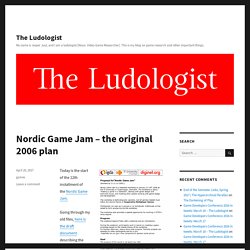

L’histoire des jeux vidéo : sexe, drogue et armes à feu. Olivier Mauco, docteur en science politique, s’attaque dans cet ouvrage aux questions politiques et morales qui font souvent l'objet de controverses dans l’industrie du jeu vidéo.

Sa position de consultant et de game designer, mais également de joueur, lui confère une place de choix pour traiter de ces problématiques : l’auteur, à la manière des « aca-fans » est impliqué et distancié dans sa recherche. Cette analyse diachronique et évolutive de l’histoire politique des jeux vidéo en France se place du côté des industries créatives, des récepteurs, mais également des médias (généralistes et spécialisés). Ce triple terrain permet de confronter les points de vue et de dessiner les contours de mise en place de régulations, et des enjeux sous-jacents qui ne sont pas toujours dans l’intérêt des joueurs. Dès l’apparition et la commercialisation des premiers jeux vidéo et des consoles de salon, la publicité a joué un rôle dans la perception par le grand public de ces produits de divertissement.
Edward Castronova. The Ludologist. These are some comments from my keynote at Rutger’s Extending Play conference in 2016, co-presenting with Shaka McGlotten.

Hasn’t our sense of play suddenly become quite dark? A Theory of Fun for Game Design - Raph Koster. Confessions of an Aca-Fan — Henry Jenkins. Serious Play Conference. 22dfbc159ecf1d1ced9cb8a6ff688663b6ac. Persuasive Games. A book about how videogames make arguments: rhetoric, computing, politics, advertising, learning.

Videogames are both an expressive medium and a persuasive medium; they represent how real and imagined systems work, and they invite players to interact with those systems and form judgments about them. In this innovative analysis, Ian Bogost examines the way videogames mount arguments and influence players. Drawing on the 2,500-year history of rhetoric, the study of persuasive expression, Bogost analyzes rhetoric’s unique function in software in general and videogames in particular.
The field of media studies already analyzes visual rhetoric, the art of using imagery and visual representation persuasively. Bogost argues that videogames, thanks to their basic representational mode of procedurality (rule-based representations and interactions), open a new domain for persuasion; they realize a new form of rhetoric. Contents PrefaceProcedural Rhetoric Politics Advertising Learning. Ian Bogost. Ludology.org (Gonzalo Frasca) G. Frasca 1999: Ludology meets Narratology.
Games for Change. The 400 Project. Experience de flux. Flow Theory. Flow theory was proposed by Mihalyi Csikszentmihalyi to describe the experiences of intrinsically motivated people, those who were engaged in an activity chosen for its own sake (Csikszentmihalyi, 1975, 1997).

Such activities were viewed as worth doing just for the sake of doing them rather than as means to another end. While other research on intrinsic motivation focused on behavioral outcomes, Csikszentmihalyi attempted to describe the quality of subjective experience, or how intrinsic motivation felt. Further, he sought to explain the characteristics of activities that people were intrinsically motivated to pursue, and why such activities were rewarding. Under certain conditions, people's experiences are optimal. Chris Crawford, The Art of Computer Game Design (1982) Jane McGonigal : le jeu peut rendre le monde meilleur.
Mihaly Csikszentmihalyi sur "le flux" Bartle's Taxonomy of Player Types (And Why It Doesn't Apply to Everything) Richard Bartle co-created MUD (Multi-User Dungeon), the text-based precursor to today's MMORPGs, while studying at Essex University.

He ended up formulating the theory that all MUD players could be broken down into four main types: killers, achievers, explorers, and socializers. This theory has since been used in all sorts of game design situations where it doesn't apply - let's look at what exactly it does tell us. MUD is a text-based adventure game (no graphics at all, only text) that had the then-unique attribute of being able to be played alongside other human players. It was one of the first online persistent worlds created, and you can still grab a MUD client today, connect to a server and play. Raph's Website. Digital Games Research Association. Game Studies 2015. Self-Reflexivity and Humor in Adventure Games by Krista Bonello Rutter Giappone This article focuses on the “adventure game” genre, its metafictional humor, and tendency towards self-parody in both its formative stage and its more recent ensuing nostalgic turn, with particular reference to Zork (Infocom, 1980), LucasArts’ Monkey Island games (1990-2000), and Telltale’s parodic-nostalgic “Reality 2.0” (Sam and Max, 2007).

[more] The Demarcation Problem in Multiplayer Games: Boundary-Work in EVE Online's eSport. Game-Studies.fr - Game Studies à la française Game-Studies.fr. Game Studies - Home. Welcome to the official site of the ICA Game Studies Division (GSD)!

The study of games and the game experience offers opportunities for the study of human communication that involve multidisciplinary approaches that merge the disciplines of conventional communication studies and research, arts and visual design, cognitive studies, computer sciences, cultural studies, engineering social sciences, health sciences, and information design. Although the common ground for the Game Studies Division is digital and video games, the group encompasses a broad range of inquiry topics and methods. The group serves as fertile meeting ground for the exchange of ideas among a very broad spectrum of disciplines and hosts a number of activities at ICA's annual conference. As the 2015 ICA Puerto Rico conference has passed, the Division is not actively accepting paper or panel proposals. Join us! Recent News. Game Studies. Archive of Issues by Date.
Games Research Journals - digrastudents.org. Game Studies Journals - Video Game Studies - Research Guides at University of Michigan Library. International Journal of Serious Games 2, 4 (2015) International Journal of Serious Games 2, 3 (2015)